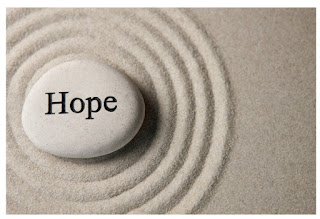Hope and Action
2022
Early September
At the beginning of this month there was a palpable air of panic. Headlines on energy prices and the cost of living competed with the news of catastrophic floods in Pakistan and the war in Ukraine. In Britain politicians were tearing pieces out of each other in a leadership election, Parliament wasn’t functioning, the heatwave had caused havoc with the harvest, there were multiple strikes and civil liberties were at risk.
Mid September
And now? For some days the country has been on hold. Immaculate organisation, solemn ceremony, gleaming uniforms and medieval language are on screens everywhere. The backdrop to our lives has changed. People are classified as ‘mourners’ and ‘well-wishers . Their opinions are channelled through a respectful media, punctuated occasionally by moments of protest.There are sombre speeches about duty, heavy responsibility and service.
How do we navigate this? Everything has changed and nothing has changed. After the ceremony, the mourning and the flowers, the stark national and global issues won’t go away. Bills will continue to rise, as will corporate profits. The poor, the homeless, the victims and the persecuted will still be living on a knife-edge but we don’t see or hear from them in these huge crowds, where the atmosphere is described to us as being heartwarming, respectful, even devotional. What can we learn from this state of limbo? Why do some find it strange and a bit troubling, while others believe and fully accept that this is as it should be?
And what does this mean for women? There is much talk at the moment of service to others, duty, and responsibility as they were seen to be embodied in the Queen. It is striking to hear so many people speak of their own mothers, in whom they saw similar qualities. Is there a subconscious understanding that insufficient attention is paid to these values and that the death of the Queen has become a conduit for people to give voice and praise them? Or is this overthinking a situation which is really just about the power of celebrity and feelings of personal connection?
Late September and beyond
As we move towards the end of the month and return to a sort of normality, with spiralling inflation, increasing inequality, inadequate services and an exhausted workforce, how can we have any hope that we can influence change? If the country is broken, who can mend it?
The power of hope
For an answer it’s well worth spending some time reading Hope in the Dark* by Rebecca Solnit, which was first drafted during the outbreak of the war with Iraq in 2003/4.
Her intention was to ‘make the case for hope’. Through robust and inspiring argument she asserts that hope is an alternative to both optimism and pessimism (which she believes are just excuses for inaction). Hope has a part to play in bringing about change, but only if you ACT.
Solnit reminds us how much has changed and how powerful we can be together:
…..we have a seldom-told, seldom-remembered history of victories and transformations that can give us confidence that, yes, we can change the world because we have many times.
Change can be a long time coming but it is dangerous to assume that once success has been achieved there is no more to be done. Victory can be smashed in a moment (look at the overturning of Roe vs Wade for example). And it’s equally dangerous to retreat in the face of failure. Moments of great transformation and moments of intense despair must be faced side by side. Hope, tightly meshed with activism offers a way forward, turning resolutely away from despair and taking actions, however small they might be. You don’t have to glue yourself to the Speaker’s Chair or take up residence in a tree. You can make a good start just by informing yourself, reading, talking to others, signing petitions and writing to politicians.
Action
All over Milton Keynes there are individuals and groups who are persisting, campaigning and embracing hope. They all have stories to tell.
Milton Keynes Fawcett group has been working on a number of different initiatives and campaigns, including monitoring and analysing the results of this year’s local elections, supporting women refugees, calling out violence against women and girls, noting the fragility of reproductive rights and working in partnership with other women’s groups, particularly VOWMK – see below.
October’s blog will look at the Fawcett projects in more depth, but if you are interested in learning more about support for women in Milton Keynes then you are warmly invited to explore VOWMK (Voices of Women in Milton Keynes), a partnership of different groups committed to raising women’s voices and campaigning for change. Visit the website at www.VOWMK.co.uk to learn more About the partnership. Subscribe below to the brilliant monthly newsletter which signposts you to events, issues, people and projects.
Scroll down the latest VOWMK newsletter for upcoming events - the Foraging for Facts workshop and White Ribbon Day. There are news and views from Healthwatch MK, GirlPack who are alleviating period poverty, and the Backoff campaign. It contains signposts to local cost of Living support and health services.
Send us an article or an event to be included in the next edition - deadline is the last Wednesday before the end of the month to voicesofwomenmk@gmail.com
Moving forward with hope
So many stories, so much happening, so many ways to get involved.
The future may seem dark and uncertain, but it’s a darkness that can be rich and full of possibilities for change. Hope, combined with action will help to bring about that change.


.png)

